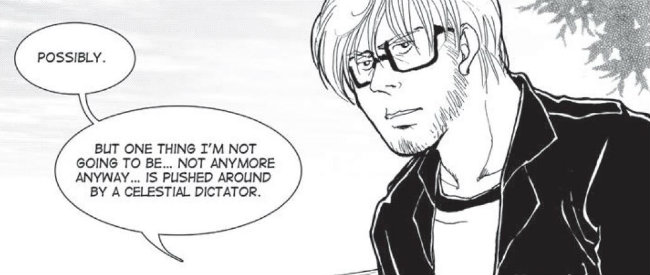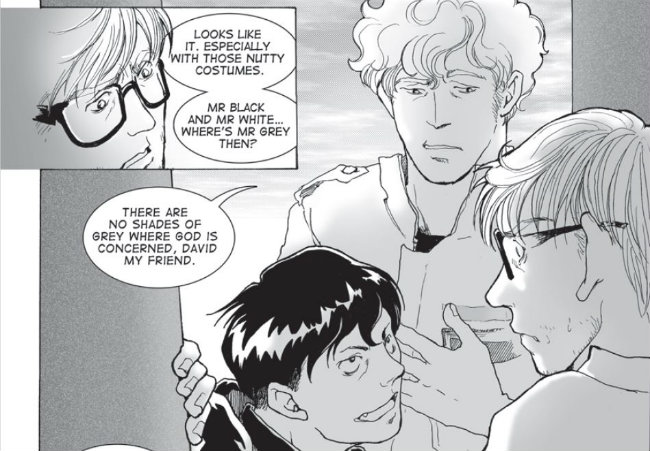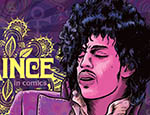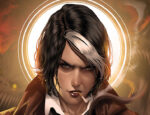
Despite clarity of tone and impressive artwork, stilted dialogue and a patently unlikeable protagonist derail a subversive premise full of potential.
I’ve never been much for rules. Too many of them seem supremely arbitrary – rules for rules’ sake. Many rules seem ready-made to be broken. But not all of them. I’m about as lapsed a Catholic as there’s ever been  but Christianity’s Ten Commandments have never struck me as anything other than kind of reasonable.
but Christianity’s Ten Commandments have never struck me as anything other than kind of reasonable.
Isn’t it common sense not to go around killing people or stealing from them or sleeping with their partners? Seems pretty practicable to me. Having said that, I’ve never liked anybody telling me what to do, so I was intrigued by Sean Michael Wilson and Michiru Morikawa’s Breaking the 10, published last month by NBM.
After his young wife and child are killed by one of the vilest creatures to walk the planet – the ubiquitous drunk driver – our protagonist David embarks on a quest to break every one of the Ten Commandments in a fit of grief-fueled rage. He means to hold God to account for his family’s untimely death, even if it means he must sacrifice his own humanity to do so.
This isn’t totally untrodden ground. Garth Ennis and Steve Dillon’s masterpiece Preacher has much the same creative mandate. But whereas Preacher used crackling dialogue interspersed with hyper-exaggerated fits of gory violence to explore its central conceit, Breaking the 10 walks a much more sedate – and bitter – path.
Wilson lays out his premise succinctly and his arguments on either side of David’s crisis of faith are honest and thoughtful, if a little obvious. Even the pair of mysterious strangers, Mssrs. White and Black, who serve as mouthpieces for and against David’s plan to call out God, come off as obtuse and facile.
 Part of the problem is the dialogue. Wilson fails to create a natural sense of rhythm during verbal exchanges between David and his spiritual stalkers. Extended conversations have a choreographed, expository feel, as if Wilson is moderating a debate, rather than revealing the hidden depths of his characters.
Part of the problem is the dialogue. Wilson fails to create a natural sense of rhythm during verbal exchanges between David and his spiritual stalkers. Extended conversations have a choreographed, expository feel, as if Wilson is moderating a debate, rather than revealing the hidden depths of his characters.
More concerning than stiff dialogue though, is the protagonist’s lack of resonance. Despite his recent losses, David is a hard guy to like. Rather than empathy, he oozes pettiness and petulance in roughly equal measure. His actions aren’t subversive or even self-righteous. His behaviour is selfish and a strange, contrived way to honour his dead loved ones.
Perhaps this was Wilson’s point, though – to break David’s character down into something reprehensible and instill in the reader a deep discomfort, in keeping with his downward spiral into self-pity and scorn. If that was his intent, Wilson misses the mark.
David’s quest to break the 10 reeks of the same sense of self-centred entitlement that seems to be crippling a generation of keyboard warriors and social media trolls. To read similar behaviour, then, in my comics, isn’t timely or relevant, it’s plain annoying.
A damn shame, that, because Morikawa drew the hell out of this book…
Sean Michael Wilson (W), Michiru Morikawa (A) • NBM Graphic Novels , $12.99














